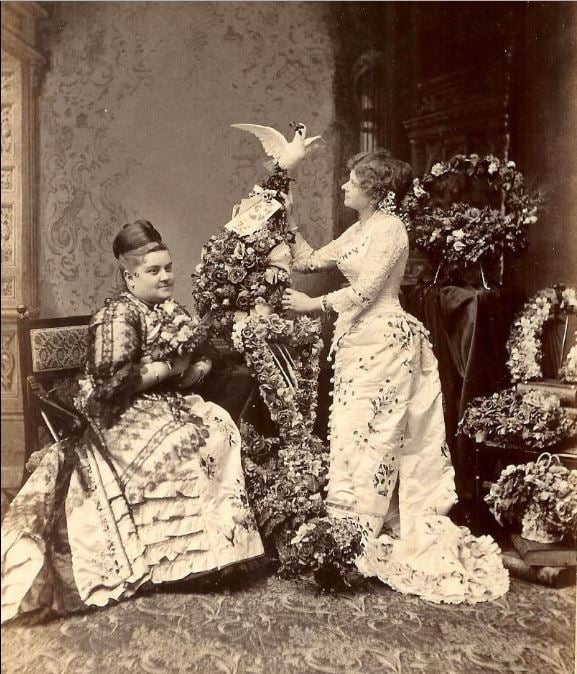Impress Your Families (And Become A Funeral Flower CHAMPION) With These Facts
July 23rd, 2015
I have a lot of respect for funeral professionals. After heading up funeralOne’s The Sympathy Store for six years, I still have not found the perfect formula of what to say when it comes to personal loss. Do you offer words of sympathy? Do you try to relate to the person’s grief? Sometimes it’s just hard to find the right words.
This is why I’m thankful to help families express their sympathy through the perfect gift. Arrangement flowers or sympathy gifts are ideal for expressing the words that families want to say (when they don’t really know how to say them) and they’re a beautiful way to honor a loved one. I’ve seen first hand the impact that a simple gestures, such as a gift of flowers, can make on today’s grieving families – especially when words don’t seem to be enough – and I’m sure you have too. But do you really know the meaning and tradition behind the flowers that fill up your funeral home? (Other than the fact that they add beauty to the room?)
Today, we’re taking a quick look back at why we display flowers in the first place, and the meaning behind some of the most traditional arrangements. So you can better educate your families – and become the ultimate funeral flower champion in your funeral home.
The History Of Sympathy Flowers
The history of flowers at funeral homes is almost just as rich of the history of funerals themselves. The first ever uses of funeral flowers way back in the mid-1800s didn’t have quite the beautiful, sympathetic symbolism that you may be picturing. The truth of the matter is, a decomposing body back in the old days didn’t smell quite so inviting. So many undertakers would display loads of fragrant flowers on top of the closed casket to help make the room a little more… pleasant to those honoring their loved one.
But as time went on, flowers at funeral homes stopped showing up out of necessity (whew!), and soon became a way to visually express love, sympathy and respect for loved ones. This was reinforced even more by the creation of “flower ladies” in Mid-Western culture.

Flower Ladies display their hand-crafted floral arrangements, including a harp, and horseshoe, at a funeral to show their support.
Image: Source
The symbolism behind flower ladies went hand-in-hand with the pallbearer role. But rather than carry the casket, they were responsible for carrying flowers from the place of the funeral, to the flower vehicle, and then into the cemetery where they would would set them up for the graveside service. Being asked to be a flower lady was a sign of great respect and love, as they were usually close friends of the family or the decreased, just as the pallbearers were. Sadly, this meaningful tradition faded as many funerals became less focused on community involvement over time.
However, even though the flower ladies may be behind us, the sentiment that they brought to funeral flowers has lived on. In modern day, flowers have become a simple, yet meaningful gift that people can share to lend their support and take on some of the burden of their loved one’s grief. Sending sympathy flowers can also go a long way towards healing and making people feel better, as they feel like they have done something to help the grieving family.
Plus, if any of your family members are like me and have a hard time putting their sympathy into words, flowers and gifts make the perfect visual expression of your feelings and your sympathy. Flowers can even go as far to help express your grief and define your relationship with the deceased, all by sending the right type of flowers.
The Meaning Behind The Flowers We Send
The color and type of flowers that you choose to send to someone can express very particular sentiments. For instance, did you know that you should never send white camellias to someone you are dating? (They are often used to express love for a parent or a child.) Instead, you should opt for red carnations, which represent strong feelings of yearning and true love. (Hubba hubba!)
Because the death of a family member or loved one can be a very emotional and confusing time for your families, it’s important that you, as a funeral professional, walk them through flower etiquette, so that they do not offend or upset anyone with their choices. To help you become an expert sympathy gift advisor, here are the meanings behind the most common types and colors of funeral flowers.

Roses
Because of their beauty and their strong messages, roses are often one of the most popular flower varieties used in funeral arrangements and casket sprays. One single rose that is found in a funeral bouquet is said to express enduring love for the deceased.
- White roses: Evoke purity, reverence, innocence and humility. Perfect for expressing sympathy, no matter what the relationship.
- Red roses: Convey love, courage and respect. They are typically used by people who had an intimate, loving relationship with the deceased. (Dark red roses also denote sorrow and grief.)
- Pink roses: Signify elegance, love, admiration and grace. This color of this rose is typically used for women and children, due to it’s lightness in both color and meaning.
- Purple roses: Display dignity, success and respect. (Purple is also considered the color of royalty.) This is a common color to use throughout a grandparent’s funeral, as a way to honor their life and legacy.
- Yellow roses: Symbolizes strong ties and compassion. They are often given by friends of the deceased.
Lilies
Another popular type of flower used in sympathy gifts and funeral arrangements is the lily. This is because it is said that lilies symbolize the idea that innocence has been restored to the soul of the departed.
- White lilies: Convey purity and innocence. (This type of flower appears at funerals more than any other variety.) A white lily is usually an apt choice for someone who had lived a short life.
- Oriental lilies: Symbolizes eternal life. Perfect for a religious funeral service that is commemorating the life lived.
- Stargazer lilies: Represent sympathy and love. A perfect option when choosing to send flowers to the immediate family of the deceased.
Carnations
The carnation is a great symbolic choice of flower for any funeral arrangement, as it is known for representing the bonds of affection.
- White carnations: Display faithfulness, innocence and purity. An appropriate choice for a the funeral of a child.
- Red carnations: Similar to red roses, red carnations help to express strong, deep feelings of true love and yearning. An appropriate flower for a wife, husband or lover to gift.
- Pink carnations: Convey remembrance and gratitude. This type of flower is often used to symbolize a mother’s or grandmother’s enduring love.
Tulips
The general meaning behind most tulips is pure and simple – perfect love. An appropriate flower for anyone who was very close to the deceased or their loved ones.
- White tulips: Often used to send a message of forgiveness, or to show that someone is worthy.
- Red tulips: Strongly associated with true love in it’s strongest sense. An appropriate flower for a wife or husband to gift to their spouse, or a parent to gift to a child.
- Yellow tulips: A common representation for cheerful thoughts and sunshine. Perfect for a funeral service that wants to focus on celebrating the life lived, and reliving the happy moments of a person’s life.
To read more about the common types of funeral flowers that are appropriate for showing sympathy, be sure to check out The Sympathy Store’s Funeral Flowers Guide.
Looking For Something Beyond Flowers?
Sometimes your families may feel like sending a beautiful arrangement of flowers isn’t enough to get their sympathy across. Or maybe they are looking for a more personalized gift that represents their relationship with the deceased. The best way to help your families express their sentiments is through a beautifully curated selection of gifts that are designed just for them and their needs. And that’s why The Sympathy Store was created.
The Sympathy Store brings together the flower arrangement, gift baskets, personalized messages and heartfelt gifts that your families want to send – and it gives it to them right on your website! Not only does this make it easier for them to send gifts (as the shipping and service information is filled in for them), but they will also be more thankful to you for helping them make this complicated process even easier.
To learn more about how you can bring The Sympathy Store to your website today (for FREE) and take your families happiness to the next level, be sure to check out this link or call us at (800)798-2575.




In addition to any physical gifts, the gifts of service is rarely forgotten. Death often occurs unexpectedly and even when their is a prolonged illness, household, yard and car maintenence has taken and will take a back seat.
Family and friends will be visiting and the grieving family can use your help to get their home in visitor ready shape and to help with the logistics of family life for several weeks after the death.
In our new book we suggest not asking “Is there anything I can do?” but asking if it would be OK if you mowed the lawn for them or arranged to have my yard service take care of yours for a period of time?
Would it be OK if you wahed their can in prepartion of visitors? Could I take the kids to after school activities? etc.
Dave Savage – educator, speaker and author Heartfelt Memorial Services: Your Guide for Planning Meaningful Funerals, Celebrations of Life and Times of Remembrance. HeartfeltMemorialServices.com
I could not agree more. I have worked for the funreal industry for 28 years, and it’s always the same when it comes to helping the survivors of a loved one. They are grieving and the last thing they want to do is think about everyday tasks; they get overwhelmed making decisions, and believe it or not it is very over whelming when someone asks if they can mow your lawn, bring a meal, etc. The family doesn’t want to put you out, and that is really something they don’t care to think of. I have always liked the idea of not only saying what can I do, but saying, I will be at your house tomorrow at 8:00 a.m. to mow your lawn, or I will be providing dinner for you and your family tomorrow is there anything you cannot eat or wish not to eat. It may sound pushing right now reading this, but experience has taught me that it removed a huge burden off the family and they appreciate not having to ask or having to say yes to getting help. Many people are uncomfortable asking for help.